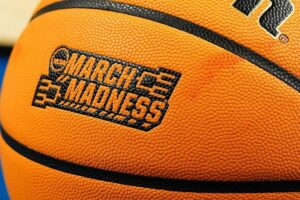Vermont Sports Betting Launch Set for January, Three Sportsbooks Licensed

Beginning January 11, 2024, Vermont will officially enter the world of legal online sports betting.
The Vermont Department of Liquor and Lottery confirmed that launch date this week. Regulators also announced that three operators have been given licenses to offer Vermont online sports betting – DraftKings, FanDuel, and Fanatics.
This announcement of the final market shape comes six months after Governor Phil Scott signed a legal sports betting market into law. This week, he spoke after state regulators announced the January opening of the market.
“I first proposed Vermont legalize sports wagering several years ago, and it’s good to see it come to fruition,” Scott said.
“Vermonters and visitors alike will soon be able to access a regulated sports wagering marketplace, which will come with important consumer protections and generate revenue for the state.”
Selections and Revenue Expectations
Vermont’s approach to introducing sports betting was marked by a selective process.
Although the law allowed for up to five operators, and five applications were received, the state chose to approve only three. BetMGM and Penn Entertainment’s new ESPN Bet both saw applications rejected, the Department of Liquor and Lottery confirmed.
This decision factors in the revenue-sharing model proposed by the applicants. Each company is required to contribute a minimum of 20% of their revenue to the state, in addition to a $550,000 operator fee.
DraftKings and Fanatics Sportsbook will each pay a 31% revenue share, while FanDuel will contribute 33%. Vermont anticipates generating up to $7 million from this deal during the first year of legal sports betting.
“Frankly, I am thrilled with the revenue share that we were able to secure with the operators,” said Department Commissioner Wendy Knight. “It’s much higher than it would have been in a tax rate.”
Interestingly, an operator line-up of DraftKings, FanDuel, and Fanatics is exactly the same as Connecticut sports betting has going into 2024.
Fanatics Sportsbook, the betting arm of sports merchandise retailer Fanatics, recently replaced Rush Street Interactive as the sports betting provider of the Connecticut Lottery, taking the third place in that market.
Limitations and Responsibilities
A key aspect of Vermont’s sports betting rollout is the emphasis on responsible gambling, regulators said. The approved operators are mandated to implement measures, such as wagering and deposit limits, timeout periods, and a self-exclusion list to help manage problem gambling.
Furthermore, the state plans to allocate $250,000 of this year’s revenue to Vermont’s problem gambling fund, underscoring the commitment to addressing potential gambling-related issues.
Despite the excitement surrounding this new development, certain limitations remain.
For instance, bets on horse racing are not permitted based on decisions made during the legislative process. However, the Department of Liquor and Lottery retains the discretion to modify these restrictions in the future.
Victory and Defeat
The Department also shed some light on why they rejected Penn Entertainment’s ESPN Bet and MGM Resorts’ BetMGM.
Penn was apparently missing crucial documents in its application. Meanwhile, BetMGM proposed a revenue sharing deal that would have changed depending on how many of its rivals were granted a license. The Department deemed that proposal as “not acceptable,” according to Knight.
As for the successful applicants, FanDuel and Fanatics have yet to officially comment. But Griffin Finan, SVP at DraftKings, gave a statement to local Vermont news outlet Vermont Public.
“We look forward to expanding our presence in New England and introducing eligible customers in the state to the DraftKings Sportsbook, equipped with a plethora of betting options and a robust suite of responsible gaming tools,” Finan said.











